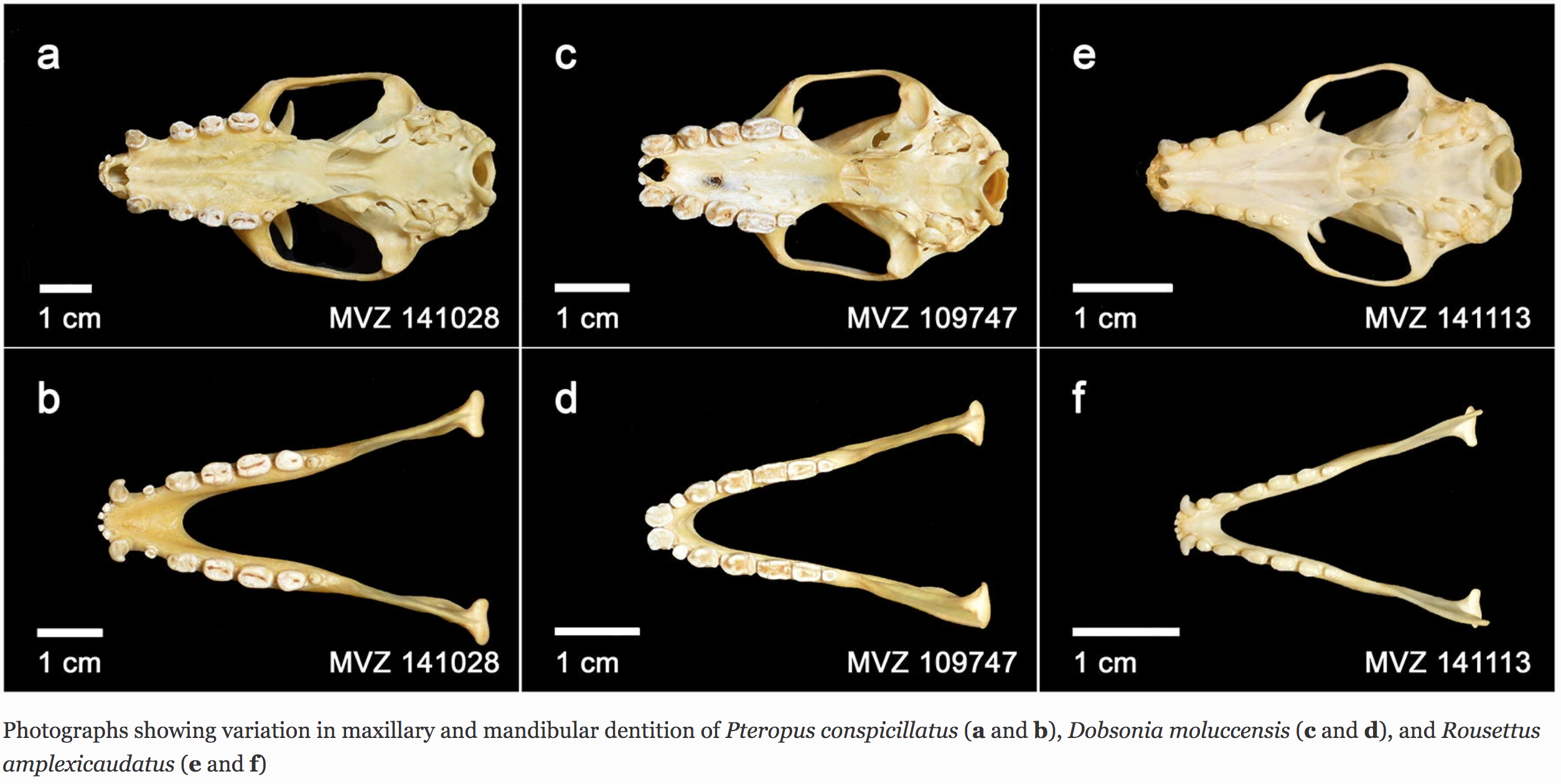
New paper on bat dentition

Tesla A. Monson, PhD

I am excited to share the results of an ongoing international research collaboration with scientists in Spain and Turkey. This work develops new regression equations for estimating stature from the tibia with important implications for forensics. Stay tuned for part 2 of the research, hopefully out sometime this summer! As always, please contact me if you would like a pdf copy of our paper.
Piecewise regression equations for estimating stature: an anthropometric study in Spanish females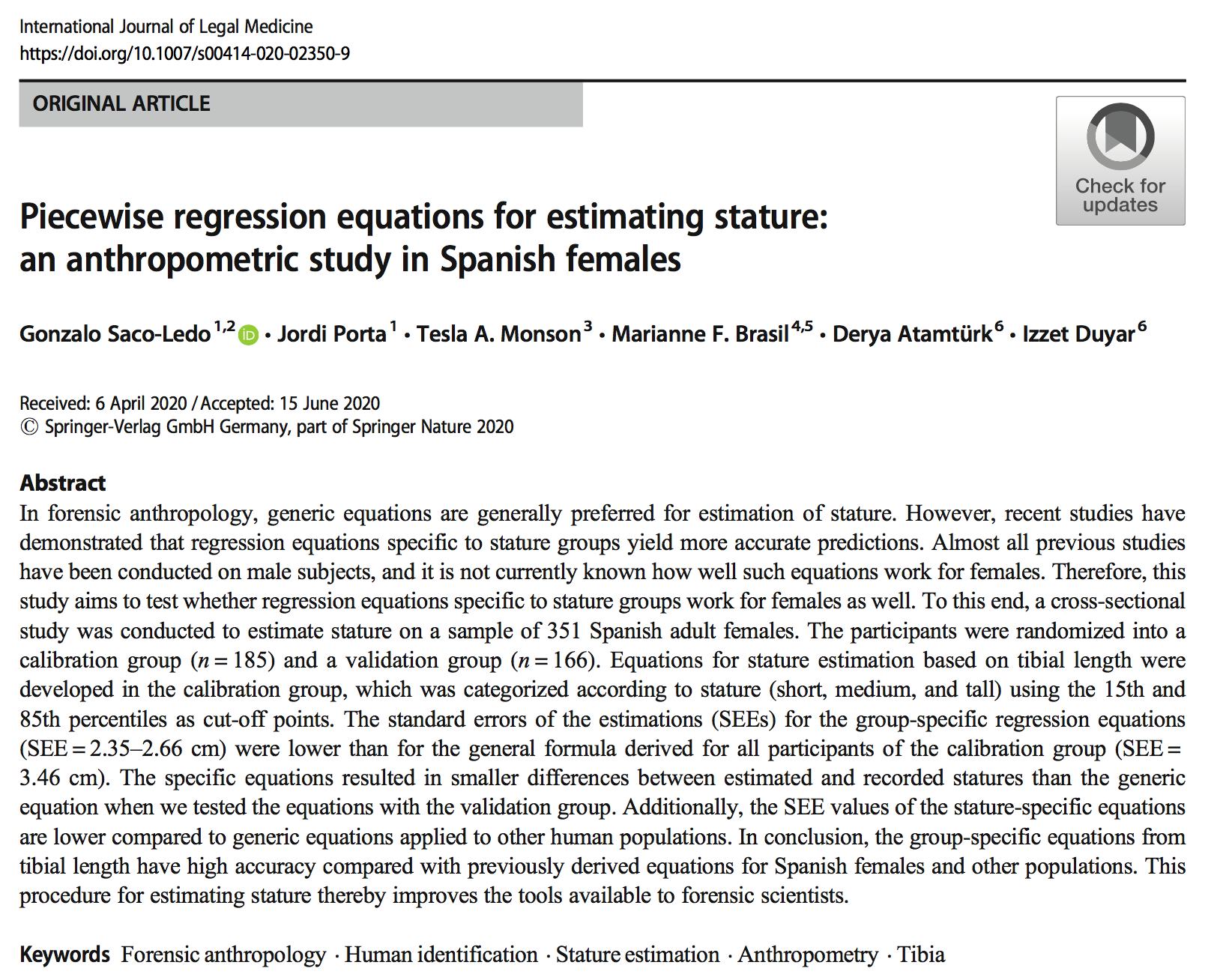
Despite everything that has been going on, I am excited to announce that a paper I started as a graduate student has now been published in The Anatomical Record. “Patterns and magnitudes of craniofacial covariation in extant cercopithecids” looks at cranial variation in African and Asian monkeys with a focus on the orbits and primate vision.
This work was also recently featured in Western Today with a great article written up by one their undergraduate interns. I encourage you to check it out!

Stay healthy out there!
I am happy to report that our new study came out this week in Ecology and Evolution! The paper is open-access and freely available.
This new research investigates the diversity of tooth morphology in mammals, finding that, contrary to previous assumptions, diet does not play a dominant role in the evolution of dental proportions. Instead, the study points to stabilizing selection as a key factor in understanding the diversity of tooth morphology in mammals. The study, a collaboration between scientists in the United States and France, looked at the teeth of more than 1,500 mammals held in museum collections in six countries to investigate the role of ancestry and diet on the evolution of dental proportions. This is the largest investigation of dental proportions to date.
The citation for the article is:
Monson TA, et al. (2019) Evidence of strong stabilizing effects on the evolution of boreoeutherian (Mammalia) dental proportions. Ecology and Evolution. https://doi.org/10.1002/ece3.5309
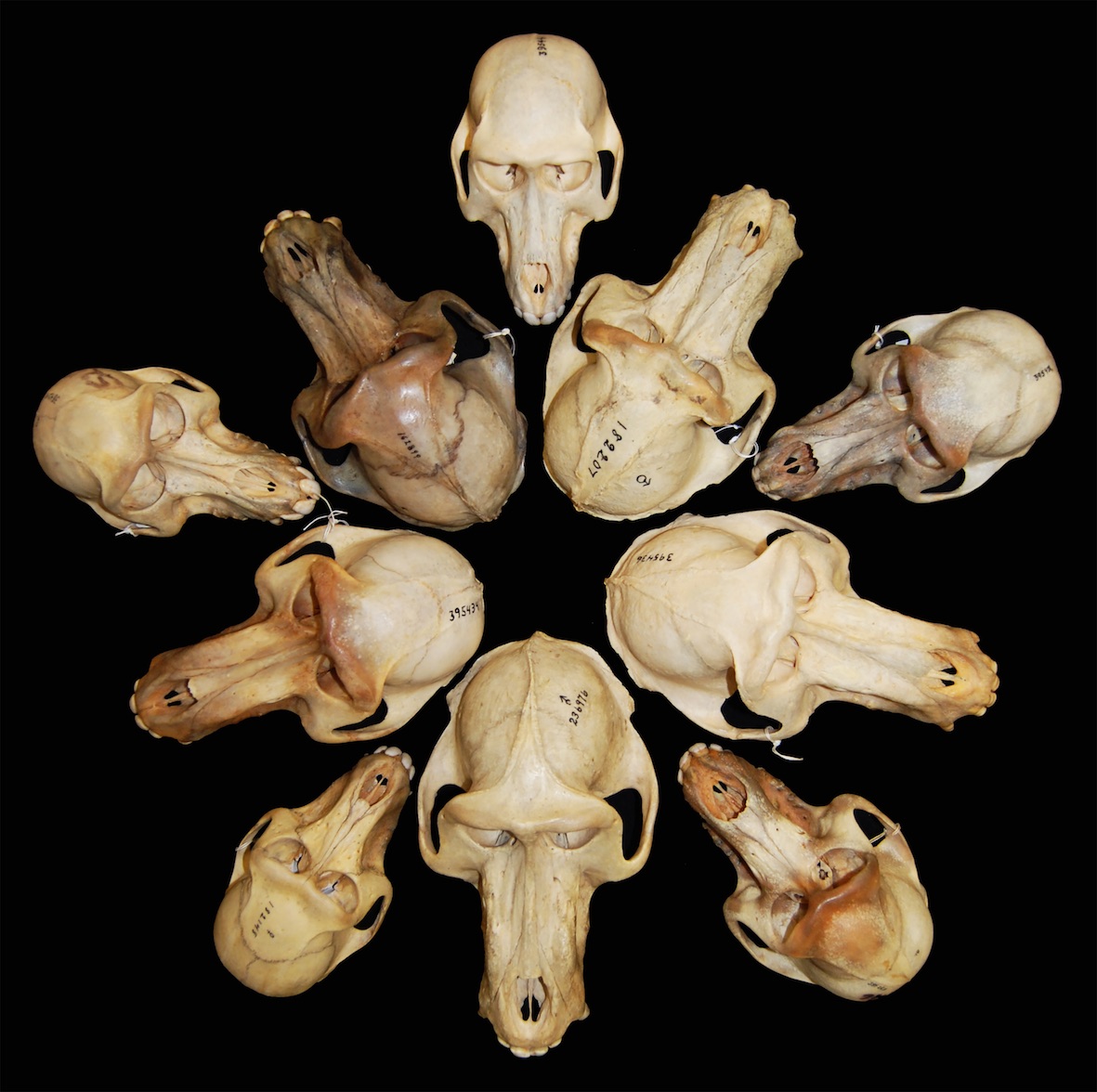

I am excited to announce that we have a new paper out now, titled, “Using machine learning to classify extant apes and interpret the dental morphology of the chimpanzee-human last common ancestor.” The paper, co-authored by Dr. David Armitage and Prof. Dr. Leslea Hlusko, was released this weekend in PaleoBios, the official publication of the University of California Museum of Paleontology. The study uses machine learning algorithms that ‘learn’ what the teeth of living apes look like and then apply the training to interpret and classify teeth from 95 fossil apes that lived in Africa, Europe, and Asia over the last 23 million years. This is one of the first studies to use artificial intelligence to investigate human origins.

The release of the paper was accompanied by a popular science article written by Inverse.com

Body proportions are significantly associated with athletic success in the NBA and MMA, according to new scientific report
http://www.jaspe.ac.me/clanci/JASPE_July_2018_Monson_3-8.pdf
July 16, 2018 – Berkeley, CA – Scientists at the University of California have released new research showing that body proportions are significantly associated with elite athletic success in the NBA and mixed martial arts (MMA). The study, led by Dr. Tesla Monson, looked at arm span (AKA wingspan, or reach) and height in more than 10,000 individuals, including 2,990 basketball players, 1,284 MMA fighters, and 6,068 recruits for the US Army. This is one of the first studies to scientifically compare body proportions and athletic success in the NBA and MMA and provides statistical evidence for the advantages of a wide arm span relative to height in athletes.

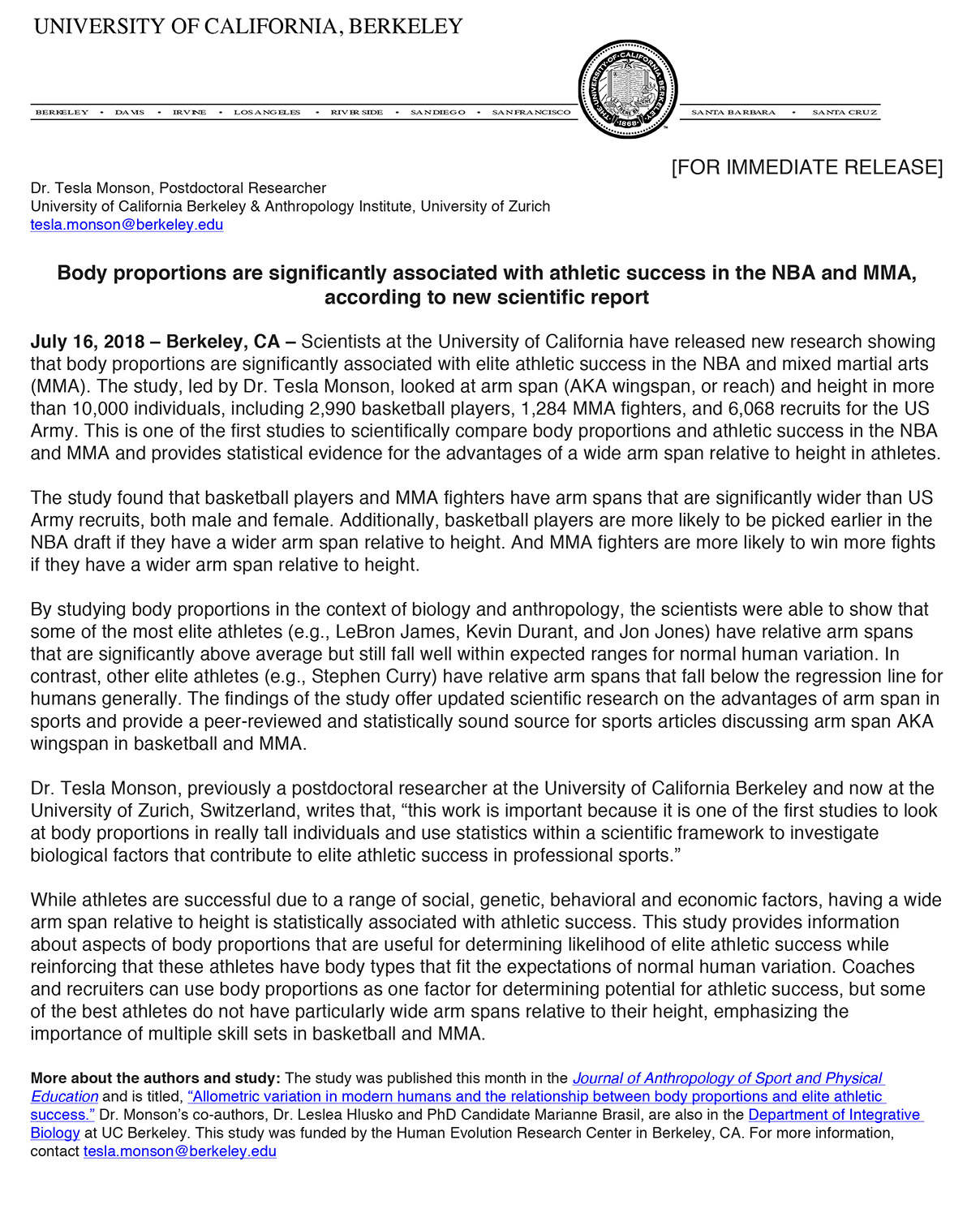
Our new paper on the evolution of the maternal:infant relationship came out last week in Proceedings of the National Academy of Sciences. Lead author, Dr. Leslea Hlusko, also wrote a blog post on the article, featured on The Conversation. I am really excited to be a part of this project that brings together dental anthropology, genomics, cellular biology, and paleoecology to pose a hypothesis about natural selection on a population of people living at high latitudes in the Beringian Refugium during the Last Glacial Maximum.
The article is open access, so anyone can read the article HERE.


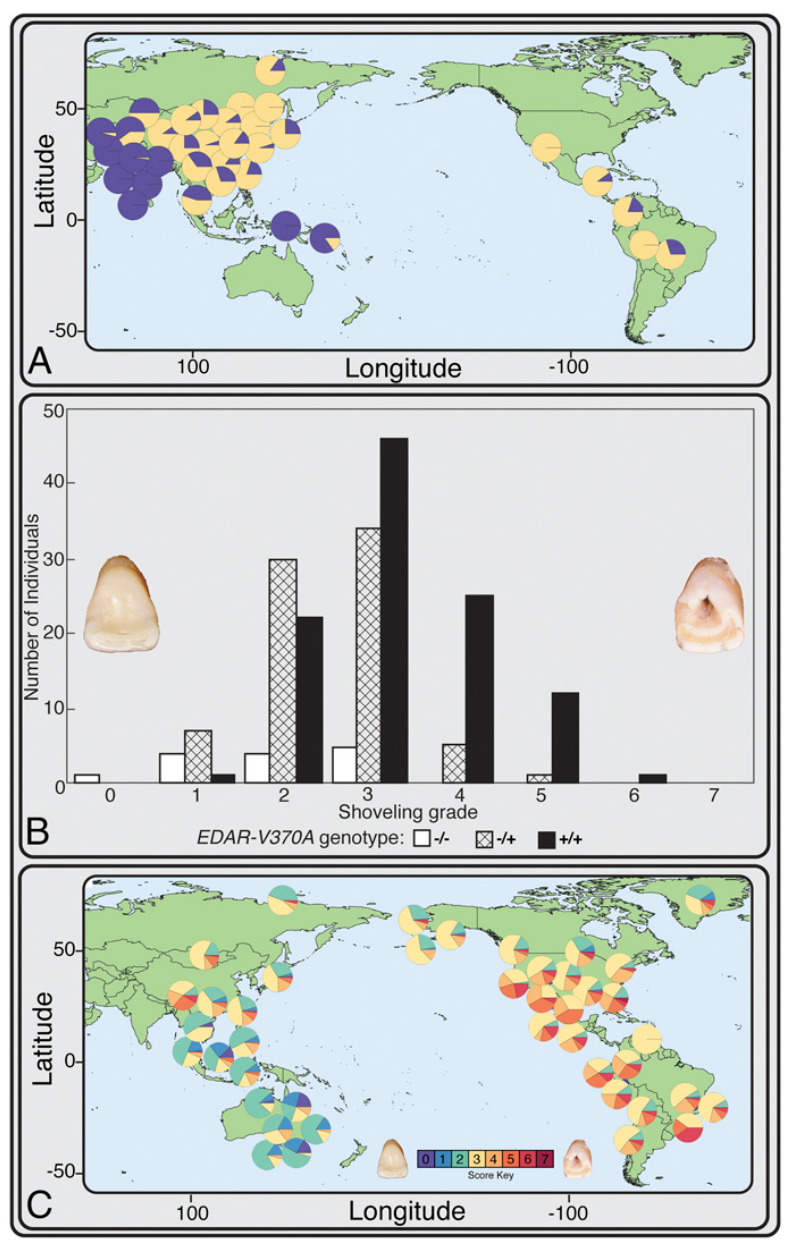
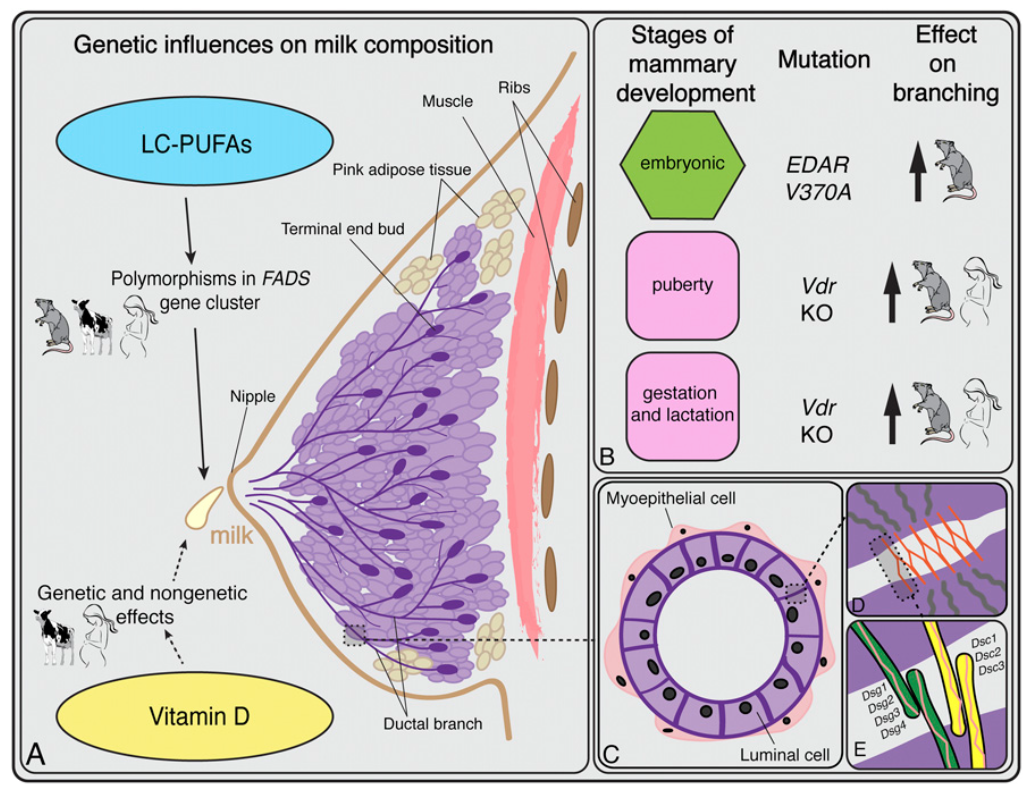
Other press on our recent work:
Science Magazine: Gene linked to breastfeeding may have boosted survival of earliest Americans
UC Berkeley: Did last ice age affect breast feeding in Native Americans?
Newsweek: Genetic Mutation Behind Shoveled Teeth May Have Been Key to Ancestral Survival
Our new article just came out in the current issue of PNAS!
Check it out here: http://www.pnas.org/content/113/33/9262.full.pdf
And be sure and enjoy the Commentary by David Polly, found here: http://www.pnas.org/content/113/33/9142.full.pdf
Other articles commenting on our work can be found below.
https://www.sciencedaily.com/releases/2016/07/160711155529.htm
http://www.eurekalert.org/pub_releases/2016-07/uoc–cip070816.php